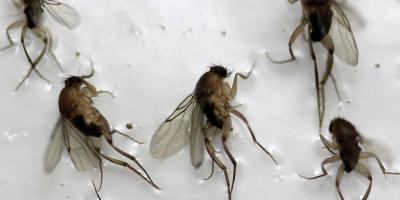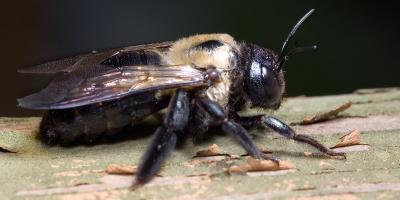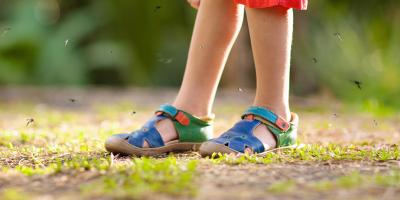Why Stinging Insects Are Much More Active During Late Summer

You may have noticed wasps, hornets, or yellow jackets buzzing around all summer long, generally keeping to themselves and not causing much trouble. The truth is, even these fearsome flyers are relatively laid back through the early spring and summer, focused mostly on nest-building and colony-raising and not all that interested in humans. Late summer, however, is a different story - and it only takes one off encounter with an especially-active hive to know the difference.
This sudden increase in activity is a natural (and predictable) part of stinging insects’ yearly cycle, but it still manages to catch homeowners and outdoors lovers off-guard year after year. That’s why it’s important to understand why stinging insects are so much more active during the late summer and early fall, and what you can do to minimize contact and keep yourself and your home’s residents sting-free.
You’d Be Jumpy Too If You Were That Hungry
Any new parent will tell you that when you’re busy preparing food for hungry mouths, you often don’t have time to feed yourself. For stinging insects like hornets, wasps, and yellow jackets, the story isn’t all that different - except it lasts all summer long.
From early in the spring onward, social stinging insects like these are more focused on raising young colony members than they are on feeding themselves, and this means many adults don’t actually have even a single bite to eat through the whole season. They’re too busy collecting bits of meat and sugary foods to bring back to the developing young through the early warmer months, and by the time late August and early fall roll around the mature workers are just about running on fumes.
This behavioral shift also syncs up with major changes in the hive itself: the queen has likely laid her last brood of fertile offspring, and together she and the fertile kings and queens begin to leave the nest to start the process all over again for next year. The infertile workers, who have dedicated their entire lives to raising the newly-departed offspring, are then left to their own tastes. That means sugar: the sweeter, the better. Sodas, fruits, and other sugary foods are particular favorites - just ask anyone who’s had a picnic ruined in early September and you’ll see just how bad these stinging pests can be.
How You Can Avoid The Sting Of Late Summer
Get in the sights of an angry hornet, wasp, or yellowjacket in late summer and you may find yourself on the receiving end of quite a few stings, even if you haven’t caused them much trouble at all. These aggressive and hunger-driven workers aren’t afraid to take on a challenge, and thanks to their smooth, venomous stinger that doesn’t break off after a sting, they can keep attacking again and again.
Because a stinging insect doesn’t have much to lose, it’s better to simply avoid them altogether. The best way to keep flying foes away is to not give them any temptation:
- Safely store all sugary fruits, drinks, and foods well-covered and inside whenever possible;
- Completely seal all garbage cans and keep them clean whenever possible, since hornets and other stinging pests are attracted to meats and even the bodies of other dead bugs;
- Keep your lawn healthy and lush to deter any species that nest in the ground and can be easily stepped on;
- Contact a pest management professional to remove any leftover nests and develop a control strategy to prevent stinging pests from returning next year.
Don’t Let Stinging Pests Ruin The End Of Your Summer
By taking steps to minimize your contact with these fearsome late-summer scavengers, you can dramatically reduce your likelihood of being stung well into the fall and beyond. If you’re struggling with hornets, wasps, yellow jackets, or other stinging pests and need a little professional assistance, our skilled pest professionals at JP Pest Services are professionally trained to safely and humanely remove and prevent stinging pests all year long.
Get in touch and let’s figure out a solution to get your home stinger-free - that way, you can get back to enjoying those last beautiful summer days in peace.



